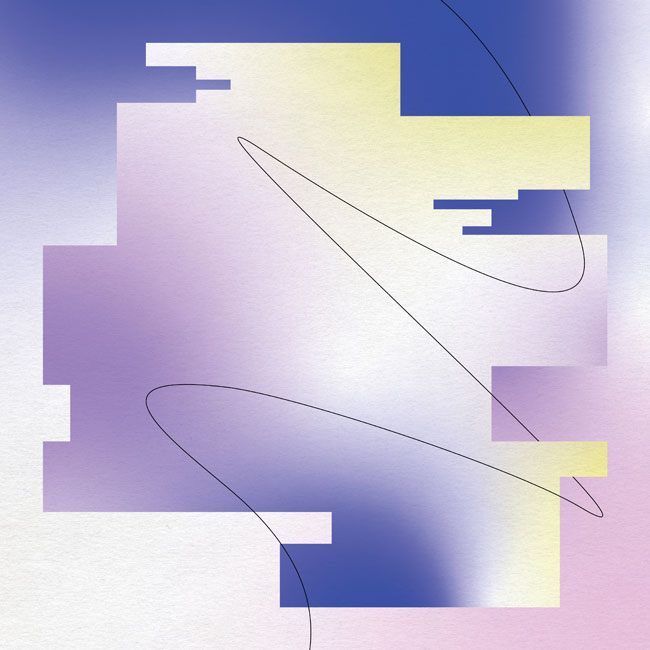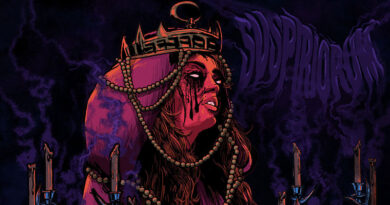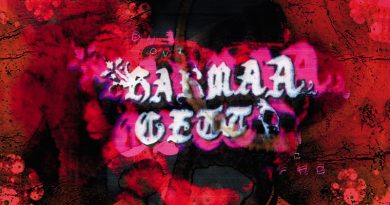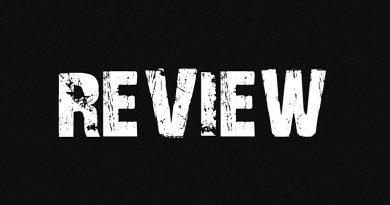Review: J. Zunz ‘Del Aire’
J. Zunz is Lorena Quintanilla from Guadalajara in Mexico whose day job sees her playing as one half of garage rock/psych outfit Lorelle Meets The Obsolete alongside Alberto González. The J. Zunz moniker started around circa 2015 and marked a musical departure from that band and is under which she has so far released three albums, with De Aire being the second for Rocket Recordings (home of Gnod, Pigs x 7, Rubber Oh, Petbrick, Kooba Tercu, and all that other good shit).

I first encountered J. Zunz‘s work via her excellent reworking of the aforementioned Pigs x 7’s Hell’s Teeth which can be found on Rocket Recordings Record Store Day Exclusive Aphelion Vol. 2 remix album, which alongside the first volume are definitely worth investigating. From there I became curious and decided to check out more of her work starting with her sophomore album Hibiscus and so blown away was I that I decided to book a ticket to see her perform at The Peer Hat in Manchester on 13th July this year. To say expectations are high for Del Aire (Air), would be an understatement.
According to the promo notes the record was recorded ‘in a vociferously windy area of Enseneda, Mexico, where Lorena spent a strict lockdown,’ This is definitely reflected in opening track Cruce (Crossing) which starts proceedings with a slow building pulsating rhythm, whispered vocals and (eventually) shimmering synths that leap to the forefront. Considering the environment Quintanilla found herself in, there is an appropriately suffocating isolation to the track, but also an understandable yearning to break free.
Lineal‘s (Linear) vocal fragilities meshes beautifully with the harder-edged (one could say colder) electronica and this wouldn’t be a review by me if I didn’t mention the films of Nicolas Winding Refn. The sounds created here are tailor made for his work, both in the neon colour schemes he utilises as well as the way he perfectly manages to balance darkness and beauty perfectly in equal measure.
a fully immersive and rounded sonic experience that needs to be heard to be believed…
The environment is once again reflected in Ráfaga (Gust) both in the title as well as sonically, evoking the conditions J. Zunz recorded the album. The track reminds me of Deafkids with its clattering caustic drumming and glitchy industrial noise, this comparison becoming even more evident by the tracks explosive ending. Outsides continues the abrasiveness but it doesn’t feel like noise for noise sake, there is instead a meditative, hypnotic Swans style quality to the music which reminds me of the likes of Twin Sister’s Self-Titled 2020 debut (that made my The Sleeping Shaman Top Ten that year) and for both these said reasons help make it for me the best track on the album.
Nina employs some jazz elements and in the album’s Bandcamp description, there are comparisons drawn to Miles Davis’ On The Corner, with Freddie Murphy (Father Murphy)’s trumpet obviously accompanying more of an electronica orchestration instead of a funk one. I was also reminded of the superlative Gridfailure/Mac Gollehon Dismemberment Cabaret collaboration, that too blended these two seemingly disparate styles together. A stunning piece. Concluding number Horizonte (Horizontal) brings the album full circle ala opener Cruce and ends the album in a relatively mellow and understated fashion.
Looking up the tags on the album’s Bandcamp page reveals the likes of ‘electronic’, ‘ambient’, ‘dark ambient’, ‘psychedelic’, and even ‘pattern music’ (whatever the hell that is). However, it’s important to note that this feels like an album that transcends and defies such narrow genre definitions, instead making for a fully immersive and rounded sonic experience that needs to be heard to be believed.
Label: Rocket Recordings
Band Links: Facebook | Bandcamp | Instagram
Scribed by: Reza Mills



